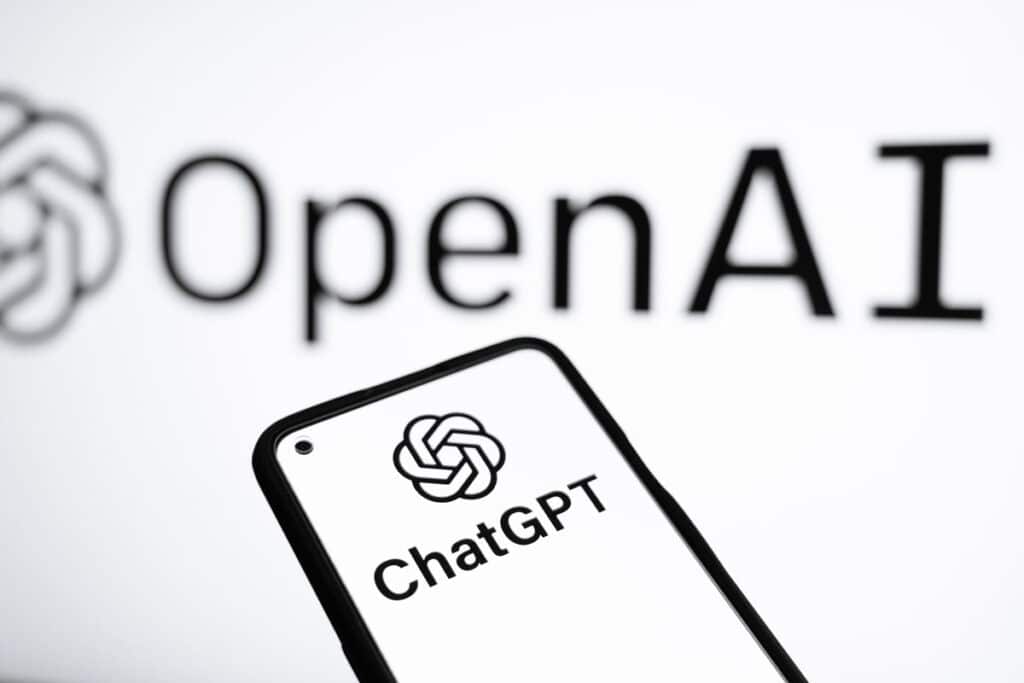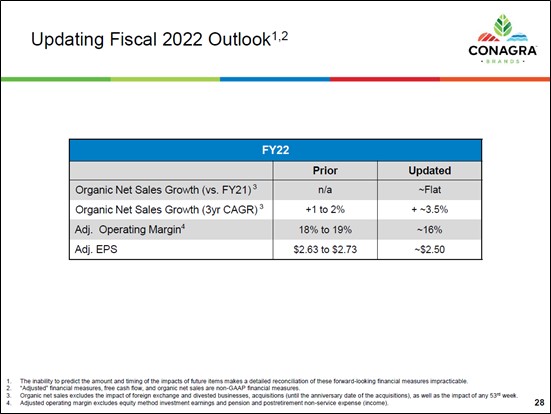OpenAI's ChatGPT: The FTC Launches An Investigation

Table of Contents
The FTC's Concerns Regarding ChatGPT and Data Privacy
The FTC's primary role is to protect consumers from unfair or deceptive business practices. This includes safeguarding consumer data and ensuring companies handle personal information responsibly. The FTC investigation into OpenAI's ChatGPT centers on potential violations of the FTC Act, focusing on data handling practices.
Potential Violations of the FTC Act
The FTC's investigation likely examines whether OpenAI's ChatGPT operations violate several key aspects of the FTC Act.
-
Unfair data practices: ChatGPT's data collection methods are under scrutiny. Questions surround the transparency of data collection, the extent of user consent, and the security measures implemented to protect user data. The FTC might investigate whether OpenAI adequately informs users about how their data is collected, used, and stored, and whether these practices meet the standards for fairness under the FTC Act. Concerns include the potential for data breaches and the robustness of OpenAI's security protocols.
-
Deceptive practices: The FTC might also investigate whether OpenAI has made misleading claims about ChatGPT's capabilities or how user data is handled. This could involve examining marketing materials and user agreements to determine if they accurately represent the AI's functionality and data privacy measures. Misrepresentation of data usage or the level of security provided could constitute deceptive practices under the FTC Act.
-
Violation of COPPA: The Children's Online Privacy Protection Act (COPPA) sets strict rules regarding the collection of personal information from children under 13. The FTC's investigation may examine whether OpenAI has adequately addressed COPPA compliance, particularly concerning the potential collection and use of children's data through ChatGPT interactions.
The Scope of the Investigation
The FTC's investigation likely encompasses various aspects of OpenAI's operations, including:
-
Data security breaches and vulnerabilities: The FTC will scrutinize OpenAI's security infrastructure to identify any vulnerabilities that could expose user data to unauthorized access or breaches.
-
Data minimization and purpose limitation: The investigation will likely examine whether OpenAI collects and retains only the minimum necessary data and uses it solely for the stated purpose. The FTC may assess whether data collection practices are proportionate to the services provided.
-
The accuracy and potential biases in ChatGPT's outputs: While not directly related to data privacy, the accuracy and potential biases in ChatGPT's responses are relevant to consumer protection. Biased or inaccurate information could mislead users and cause harm.
-
The use of personal data in training the AI model: A critical aspect of the investigation will focus on how personal data is used to train the ChatGPT model. The FTC will likely assess whether OpenAI has obtained appropriate consent and adhered to data privacy regulations in this process.
Implications for OpenAI and the AI Industry
The FTC's investigation carries significant consequences for OpenAI and the broader AI industry.
Impact on AI Development
This investigation will likely have a profound impact on AI development and regulation:
-
Increased scrutiny of AI data practices: The investigation signals a shift towards greater scrutiny of how AI companies collect, use, and protect user data. This will likely lead to more rigorous data privacy audits and increased regulatory oversight.
-
Slowdown in AI innovation due to increased regulatory burdens: Increased regulatory burdens could potentially slow down AI innovation as companies navigate stricter compliance requirements. However, this could also lead to more responsible and ethical AI development practices.
-
The need for stronger data privacy protections in AI systems: The investigation highlights the urgent need for robust data privacy protections in AI systems to ensure user data is handled responsibly. This will necessitate the development of more sophisticated privacy-preserving technologies and practices.
-
Greater emphasis on ethical considerations in AI development: The investigation underscores the importance of incorporating ethical considerations into AI development from the outset. This includes addressing issues of bias, fairness, transparency, and accountability.
What This Means for Users of ChatGPT and Similar AI Tools
Understanding the data privacy implications of using AI tools is crucial for all users.
Protecting Your Data When Using AI
Users can take several steps to protect their data when using AI tools like ChatGPT:
-
Be mindful of the information you share with AI chatbots: Avoid sharing sensitive personal information, such as financial details, medical records, or social security numbers.
-
Review privacy policies of AI platforms: Carefully read the privacy policies of any AI platform before using its services. Understand how your data is collected, used, and protected.
-
Use strong passwords and enable two-factor authentication: Protect your account by using strong, unique passwords and enabling two-factor authentication whenever possible.
-
Be aware of potential biases in AI outputs: Remember that AI tools can reflect biases present in their training data. Be critical of the information provided and cross-reference it with other reliable sources.
Conclusion
The FTC's investigation into OpenAI's ChatGPT marks a significant turning point in the regulation of artificial intelligence. The outcome will likely have far-reaching implications for OpenAI, the broader AI industry, and users alike. Increased transparency, stronger data protection measures, and a more ethical approach to AI development are now more crucial than ever. Stay informed about developments in this FTC investigation of ChatGPT and be proactive in protecting your data when using AI tools. Understanding the potential risks and taking necessary precautions is key to navigating the future of AI responsibly. The continued discussion surrounding the FTC investigation of OpenAI’s ChatGPT is vital for ensuring a safe and ethical AI landscape.

Featured Posts
-
 Yubiley Bryusa Uillisa Trogatelnoe Pozdravlenie Ot Demi Mur
May 06, 2025
Yubiley Bryusa Uillisa Trogatelnoe Pozdravlenie Ot Demi Mur
May 06, 2025 -
 Cole Escola A Historic Nomination For Best Play Leading Actor
May 06, 2025
Cole Escola A Historic Nomination For Best Play Leading Actor
May 06, 2025 -
 Finding Sabrina Carpenter Skins In Fortnite Tips And Tricks
May 06, 2025
Finding Sabrina Carpenter Skins In Fortnite Tips And Tricks
May 06, 2025 -
 Watch Celtics Vs Trail Blazers Live Game Details For March 23rd
May 06, 2025
Watch Celtics Vs Trail Blazers Live Game Details For March 23rd
May 06, 2025 -
 The China Factor Automotive Brands Facing Headwinds In The Chinese Market
May 06, 2025
The China Factor Automotive Brands Facing Headwinds In The Chinese Market
May 06, 2025
